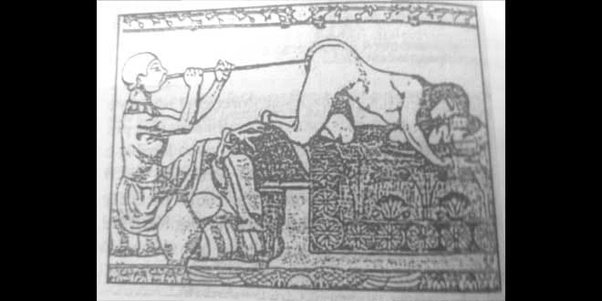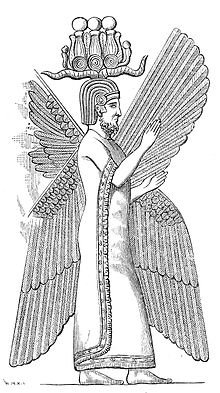Share @

In ancient Egypt there was a sacred duty: to ensure the good health of the pharaoh. If the pharaoh felt that he had eaten too much or had intestinal problems, he only had to call his anal guardian.
The “proctologist” was in charge of problems such as hemorrhoids, but another of his functions was to empty the pharaoh’s intestines when he had ingested so much food that it made digestion difficult. The guardian of the sacred anus inserted a cannula and blew hot water to open his rectum.
And not only the pharaohs used this technique, other lower-ranking ancient Egyptians also did so, but instead of a cannula, rods or reeds were used through which water was pumped into the patient’s intestines.

Who were the babylonians anyway?
The term “Babylonian” refers to either the inhabitants of the ancient city of Babylon, or the subsequent state and empire that emerged from it. Initially, the city was inhabited by Akkadian and Amorite peoples. By the advent of the 1st millennium BC it was also home to various Aramaic populations. The culture of southern Mesopotamia (and thus Babylonia) was a blend of the Sumerian and Akkadian cultures, and this syncretic relationship continued even after the death of Sumerian as a vernacular language.
Just as in the 3rd millennium BC, throughout the 2nd millennium there was a gradual shift in power towards the more northerly cities. Babylon became the chief administrative center for several dynasties which exerted both direct and areal influence over the region prior to the advent of the Middle Assyrian and Neo-Assyrian empires.
“Babylonian” is also the name given to the dialect of Akkadian spoken in lower Mesopotamia during the 2nd millennium and 1st millennium BC (though, by the mid 1st millennium Akkadian had largely been supplanted by Aramaic as the vernacular in the region).
The last independent state centered on the city of Babylon was the short-lived Neo-Babylonian Empire, which existed from 612–539 BC, at which point it was conquered by the Achaemenids and incorporated into the Persian Empire.
They are extinct. The Babylonian people, following the collapse of their ancient empire and civilization, merged with the Persians, the Ancient Greeks, and eventually the pre-Arabs and Arabs. If we had a sample of Babylonia mitochondrial RNA, I imagine we’d find it spread over a great area, from North Africa to the Near-, Middle-, and Far-East, up into Turkey and the Caucasus, and perhaps down to the Horn of Africa. Such an amazing civilization, now buried under sand.
You know if I found out I had even just 1% Canaanite DNA I’d be thrilled given how much I’ve studied them. But it doesn’t appear many of their descendants made it to France, England, or Ireland. Contrary to others here, I do not know about the Babylonian empire, but I have read the Bible, Asmiti Utari. …
Go to Daniel chapter Two, is one route
We do know that the writing of names, indeed words, changes according to the predominant culture of the time in which things are written. Those are not mistakes, but linguistically and culturally bound. And can be traced historically, even from one language developing to another.
Not all of us are historians, or specialists of a given time piece. So that is beyond our reach as active contributors, but men and women, even children, far and wide, are interested also in history, and things historical, which we like to read about accordingly, for our further instruction.
But I have no doubt that such a man would have greatly benefited from _at least occasionally _listening carefully to the voice of the God of all. And so then would the people he reigned over in his time.
Commonly referred to as prophecy, or more correctly here, the prophetic voice. Not the same as a voice of doom and catastrophe _certainly not “apocalyptic” which merely refers to the manifestation of Christ God’s Chosen One, the Righteous Innocent [Eugene Peterson ‘The Message’ version of the Bible _Contrary to some popular thinking and rendering. ‘Apocalypse’ the book of Revelation 19.10 speaks of the Spirit of prophecy being the witness of Jesus.

The Babylonians were overthrown by the Achaemenid Persian dynasty in 539 BC. Cyrus the Great’s pretext was that the god Marduk was being disrespected by the Neo-Babylonians. Cyrus did not kill the men, nor enslaved the women & children.





